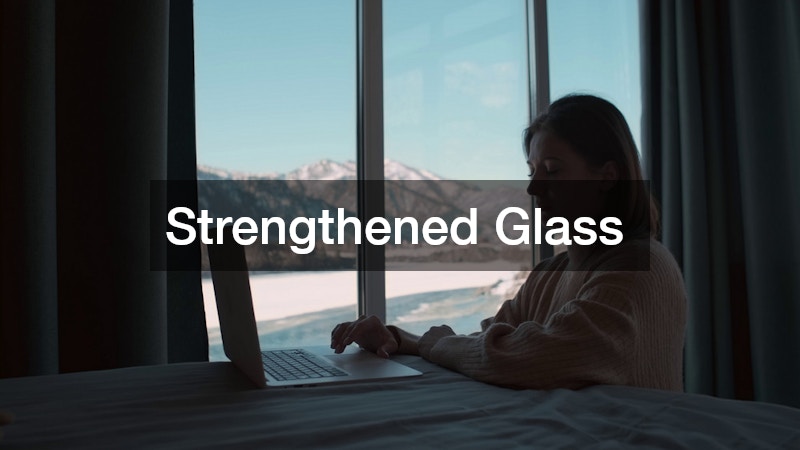In recent years, the demand for a home window tinting service has surged across hot climates. Homeowners and businesses alike are increasingly recognizing the multifaceted benefits that window tinting offers, ranging from energy efficiency to health and safety improvements. This article delves into the reasons behind this trend and explores the key advantages driving the popularity of window tinting in sun-drenched environments.
How Window Tinting Improves Energy Efficiency
Reduction of Solar Heat Gain
One of the primary benefits of window tinting is its ability to significantly reduce solar heat gain. By minimizing the amount of solar energy that penetrates through windows, tinted films effectively lower indoor temperatures, thus reducing the need for air conditioning. According to studies, window tinting can cut cooling costs by up to 30%, a particularly appealing advantage in regions where energy expenses soar with the thermometer.
The technology behind window tinting involves materials specifically designed to reflect and absorb sunlight, lessening its impact without sacrificing natural light. As a result, more households and businesses are opting for this solution not only to lower operational costs but also to reduce their carbon footprint. Consequently, window tinting contributes to a more sustainable future, aligning with global energy conservation goals.
Enhanced Insulation Properties
Beyond reducing solar heat, tinted windows enhance the insulation properties of buildings and vehicles. This improvement in insulation helps maintain consistent indoor temperatures, creating cooler indoor environments during scorching summers. With less fluctuation in temperature, HVAC systems can operate more efficiently, ultimately leading to lower maintenance and repair costs.
Tinted films are crafted from advanced materials that help minimize thermal exchange across glass surfaces. This means that conditioned air remains inside, and hot air stays out, effectively controlling the interior climate. The efficiency of these films not only benefits occupants by providing a more comfortable space but also contributes to the longevity and performance of the HVAC systems in the property.
Health Benefits of Window Tinting
Protection from UV Rays
One critical health advantage offered by window tinting is protection from harmful ultraviolet (UV) rays. These rays are known to pose significant risks for skin cancer, premature aging, and eye damage, creating a need for effective preventive measures. Window tints are designed to block up to 99% of UV radiation, making them a vital investment for health-conscious individuals.
This protective feature of window tints is particularly crucial for those living in sun-drenched locales where UV exposure is inevitable and prolonged. Families with children and elderly members stand to benefit the most, as they are more susceptible to the negative effects of UV radiation. Moreover, this added layer of protection extends to furnishings and interior features, which can also suffer from UV-induced fading and deterioration.
Reduction of Glare
Another notable benefit of window tinting is the significant reduction of glare, a common problem in brightly lit regions. Excessive glare can lead to discomfort, eye strain, and headaches, affecting productivity and overall quality of life. By cutting down on glare, window tints contribute to creating more serene and visually comfortable environments.
Whether in a residential setting or a commercial space, unwanted glare can disrupt daily activities and hinder the function of screens and devices. Tinted windows diffuse direct sunlight, allowing occupants to work, relax, or engage in tasks without constant visual disturbances. This translates to improved concentration and reduced fatigue, essential for both productivity and relaxation.
How Window Tinting Enhances Privacy and Security
Increased Privacy
Privacy is a major concern for both residential and commercial property owners, and window tinting provides an elegant solution. Tinted films obscure the view from the outside without reducing the availability of natural light indoors. This allows occupants to enjoy their personal and professional spaces without the fear of prying eyes.
The versatility in the tinting style and opacity allows for customized privacy solutions tailored to the needs of any space. Whether one desires comprehensive privacy in a home setting or selective partitioning in an open office layout, window tints can accommodate various demands. As living spaces become more integrated with outdoor environments, maintaining some degree of separation becomes increasingly valuable.
Strengthened Glass
Window tinting also contributes to increased safety through the strengthening of glass surfaces. Tinted films can hold shattered glass together in the event of an impact, making them a significant safety feature in both residential and commercial applications. This capability reduces the risk of injury during accidents and makes break-ins more challenging for would-be intruders.
In natural disaster-prone areas or locations susceptible to high wind events, the reinforcement provided by window tints can be invaluable. By mitigating the shattering effect, these films minimize the danger posed by flying glass shards in storm scenarios, providing an added layer of protection. This resilience against breakage is an appealing aspect for property owners looking to improve the safety of their structures.
Window tinting presents a comprehensive array of benefits for those residing in hot climates. From enhancing energy efficiency and reducing harmful UV exposure to improving privacy and security, tinted windows address a multitude of concerns that affect modern home and business environments. By investing in window tinting, property owners can significantly improve comfort, protect health, and enhance the safety and longevity of their spaces.





